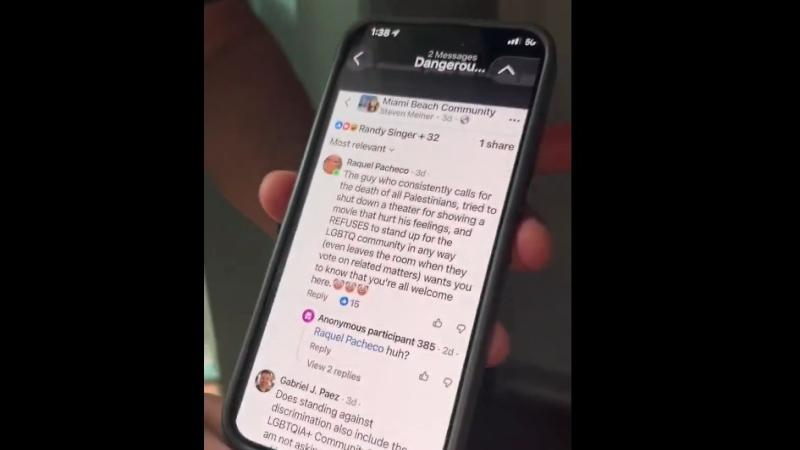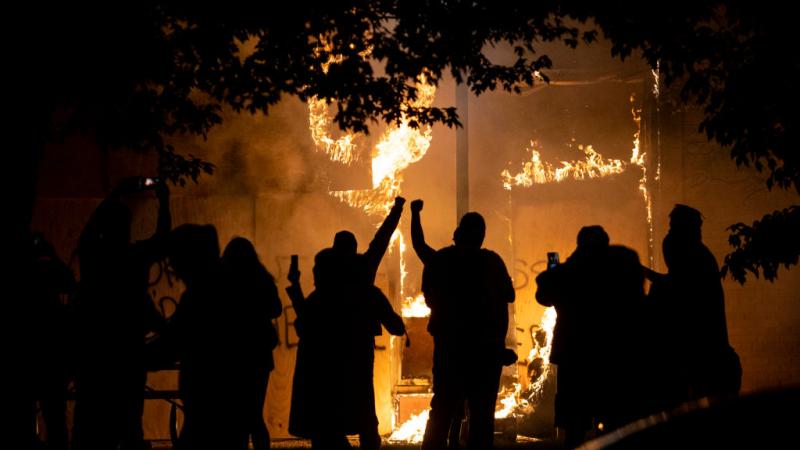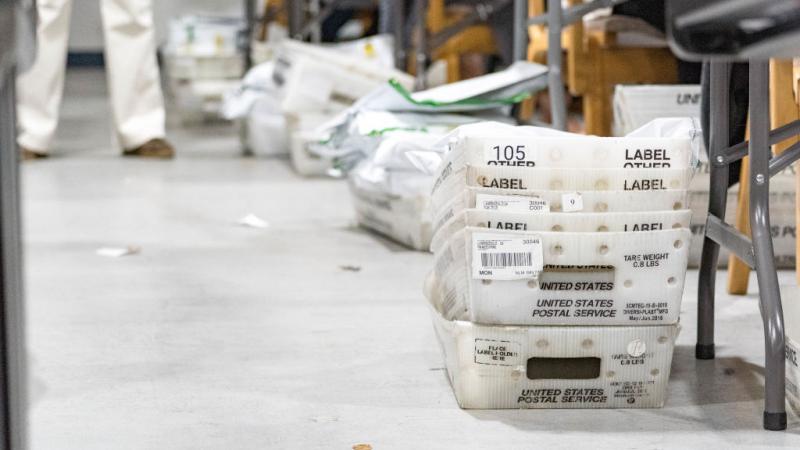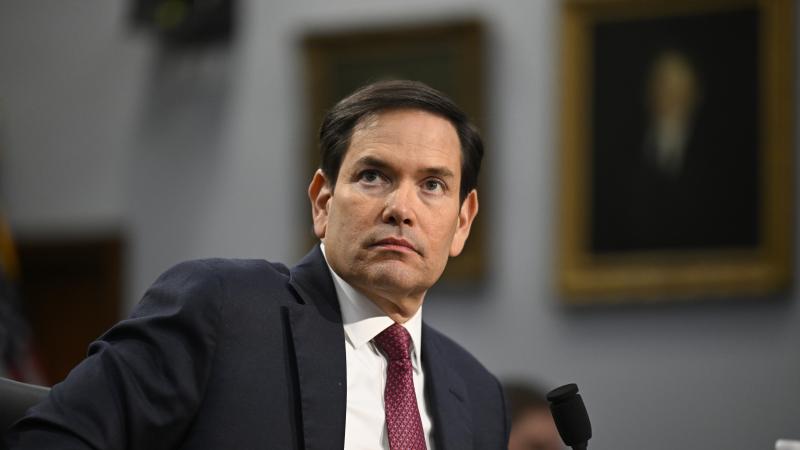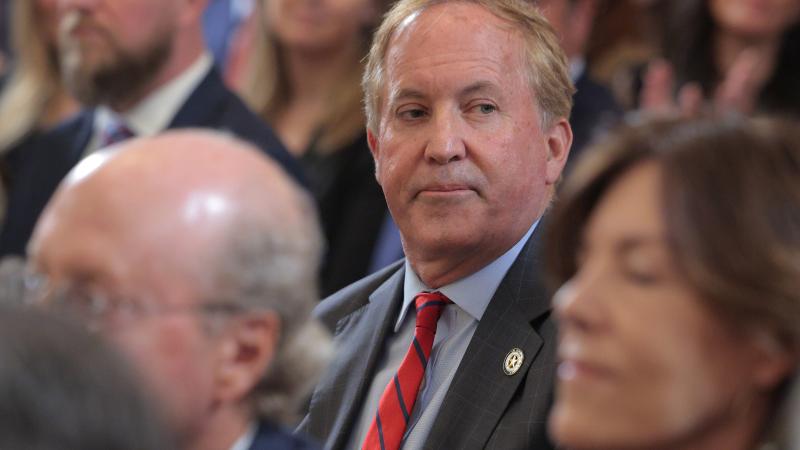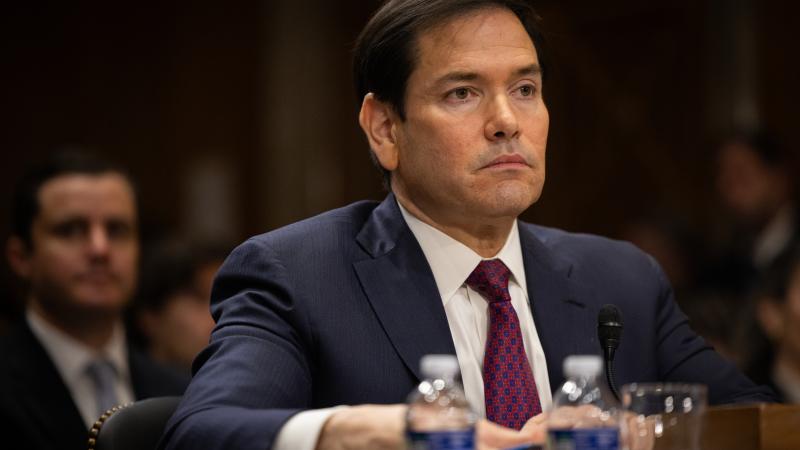In DEI mandate lawsuit, California colleges won't promise to protect conservative faculty speech
At 9th Circuit hearing, community college system and local district are wary of disavowing they'll enforce policies against outspoken history professor after firing his colleague in yearslong battle between conservatives, progressives.
California's community college system and its Kern Community College District say they have no problem with Bakersfield College historian Daymon Johnson saying the same things about "cultural Marxism" and diversity, equity, inclusion and accessibility (DEIA) that allegedly played a role in his colleague Matthew Garrett's attempted firing.
They just don't want to tie their hands by making explicit promises in open court not to investigate Johnson – again.
The 9th U.S. Circuit Court of Appeals showed exasperation in oral argument Monday with the perceived runaround from lawyers for California Community Colleges Chancellor Sonya Christian and KCCD trustees, who sought their leeway to sanction Johnson once the district fully implements Christian's DEIA "competencies and criteria."
But the three-judge panel also seemed peeved that Johnson didn't amend his First Amendment pre-enforcement suit a second time after U.S. District Judge Kirk Sheriff unexpectedly tossed it last fall, rejecting a magistrate judge's findings in Johnson's favor but letting him file again.
"Justice delayed is justice denied," and Sheriff already sat on Johnson's motion to expedite until faced with a mandamus petition, Johnson's lawyer, Alan Gura of the Institute for Free Speech, told President Trump-nominated Judge Bridget Bade when she asked why they had to issue a preliminary injunction rather than find Johnson had legal standing and remand to Sheriff.
Christian's DEIA framework "commands him to teach this ideology," first "acknowledging that everything is racist" and that Johnson must "confess his own sins in having been a racist," and if he doesn't, Johnson could be fired after his performance review next year, Gura said.
Garrett and Johnson are involved with BC's right-leaning Renegade Institute for Liberty, which for years has publicly feuded and traded accusations with BC's progressive Social Justice Institute, cofounded by Christian when she led the college 10 years ago.
KCCD trustees voted to fire the tenured Garrett two years ago for "dishonesty" for disagreeing with colleagues on diversity issues, including a proposed "racial climate task force" that would supersede a diversity committee that he and other RIFL faculty had commandeered.
He and fellow historian Erin Miller were already suing KCCD for First Amendment retaliation based on findings of "unprofessional conduct," interpreting their criticism of BC's funding priorities as a misappropriation smear against Christian's SJI. District Vice President John Corkins compared RIFL faculty to livestock who should be culled, later apologizing.
Garrett left BC with a $2.4 million settlement on the eve of an administrative law judge's ruling in his challenge under state law to his attempted firing.
President George W. Bush-nominated Judge Consuelo Callahan implied to KCCD lawyer David Urban that his client was heading for the same pricey result with Johnson, whose posts to RIFL's Facebook page were cited in Garrett's termination notice. Johnson beat a five-month investigation into his management of RIFL's page, prompted by an SJI-affiliated professor.
What's prohibited? 'We'll know it when we see it'
When Judge Sheriff dismissed the case, he also mooted Johnson's requested injunction against enforcement of several California Education Code provisions, KCCD Board Policy 3050 and Christian's DEIA framework against his speech, which closely resembled Garrett's.
President Biden-nominated Judge Lucy Koh questioned what KCCD could do to Johnson without yet having promulgated local policies in line with Christian's framework, with Gura answering the district is legally obligated to enforce the framework even without its own implementation due to an "or" construction in the statute.
"It seems like you want to have your cake and eat it at some level" by neither amending nor asking Sheriff to issue a final judgment that can be appealed, instead seeking a constitutionally prohibited "advisory opinion," Callahan told Gura.
Johnson's 107-paragraph complaint shows "exactly" what he's chilled from saying and "the process is the punishment," with a new investigation looming if Johnson offends someone again, the lawyer responded. The defendants are arguing "there's no such thing really as academic freedom," just a "collective right of the faculty," Gura said.
Koh emphasized the conduct as opposed to speech differences between Garrett and Johnson based on Garrett's statement of charges, one of which was not supported by a recording Just the News obtained. Garrett has already rebutted them at length, including alleged COVID-19 violations and baseless complaints against other faculty.
"I think there are some pretty stark contrasts" between the two, Koh said. The first charge against Garrett was for "hate speech" in his op-ed criticizing cultural Marxism, the exact speech Johnson has uttered and wants to keep doing, Gura retorted.
"A person of ordinary firmness, taking a look at the long list of speech violations" against Garrett, would be chilled from saying the same things, regardless of Johnson's exoneration in his Facebook page investigation, Gura said. The community college system's definition of punishable speech, in his view, is "we'll know it when we see it."
Johnson doesn't need to prove harm because legal standing is "highly relaxed in a pre-enforcement situation" and Christian's DEIA framework is an ongoing threat, Gura said. He urged the court to look at KCCD's objections to the magistrate judge's findings, which say it can't tell Johnson what's prohibited until it evaluates the disruption from his speech.
Adding words to the regulation
The judges pressured Urban and Deputy Attorney General Jay Russell, representing Christian, to specify which policies the defendants would disavow enforcing against Johnson, with Koh reading off each by number. When Urban hesitated, Callahan badgered him to answer yes or no: "That's what lawyers do to witnesses."
The district can't promise anything on its DEIA implementation of Christian's framework, which Urban called "guidance" and "precatory" – expressing a wish but not binding. Koh retorted that the regulation says faculty "shall employ teaching, learning, and professional practices that reflect DEIA and anti-racist principles," with no reference to who applies it.
Urban declined to say whether KCCD had implemented any DEIA regulations, telling Koh it was the plaintiff's burden to present evidence.
Laughing incredulously, Judge Bade summarized the defendants' position as Johnson lacks legal standing because of insufficient evidence of harm, but "you won't acknowledge what any potential policies say" to remove the chill over his speech from Garrett's attempted firing. "It doesn't seem that anything you've said here today would give him any comfort."
All three judges warned they might find Johnson has at least some standing, with Callahan emphasizing that was Magistrate Judge Christopher Baker's finding.
"It's kind of a legal issue" the 9th Circuit has the jurisdiction to answer immediately, she said.
"Procedurally, there is no case pending," Christian's lawyer Russell claimed, seeking to bat away the panel's suggestion it might exercise "pendent jurisdiction" to hear a closely related state law claim.
Judge Sheriff found that Christian has no ability to enforce anything against faculty, Russell said, prompting Callahan to suggest the chancellor make a deal for herself.
"So maybe the chancellor wins but ... you could throw the other people under the bus," the judge said.
The Facts Inside Our Reporter's Notebook
Videos
Links
- allegedly played a role in his colleague Matthew Garrett's attempted firing
- oral argument Monday
- Judge Kirk Sheriff unexpectedly tossed it
- magistrate judge's findings in Johnson's favor
- mandamus petition
- publicly feuded and traded accusations
- "dishonesty" for disagreeing with colleagues
- He and fellow historian Erin Miller were already suing
- "unprofessional conduct
- John Corkins compared RIFL faculty to livestock
- Garrett left BC with a $2.4 million settlement
- RIFL's Facebook page
- Johnson beat a five-month investigation
- constitutionally prohibited "advisory opinion,"
- Garrett's statement of charges
- not supported by a recording
- KCCD's objections to the magistrate judge's findings
- regulation says faculty "shall employ
- "pendent jurisdiction
